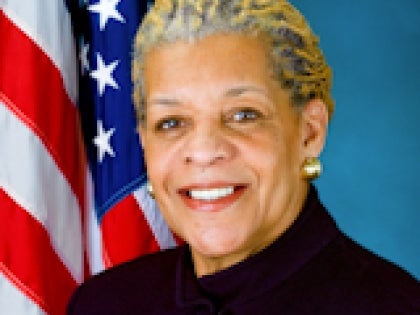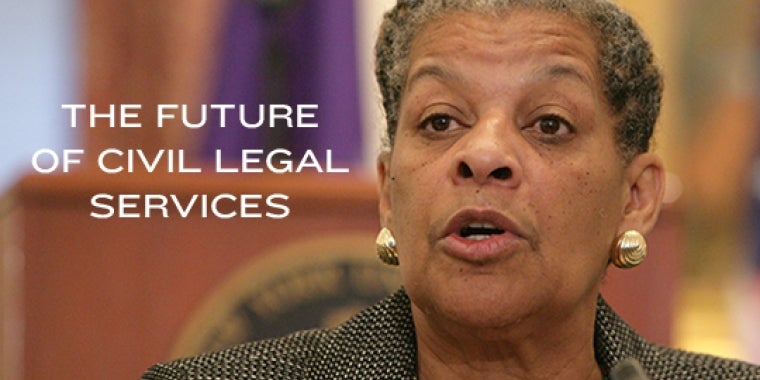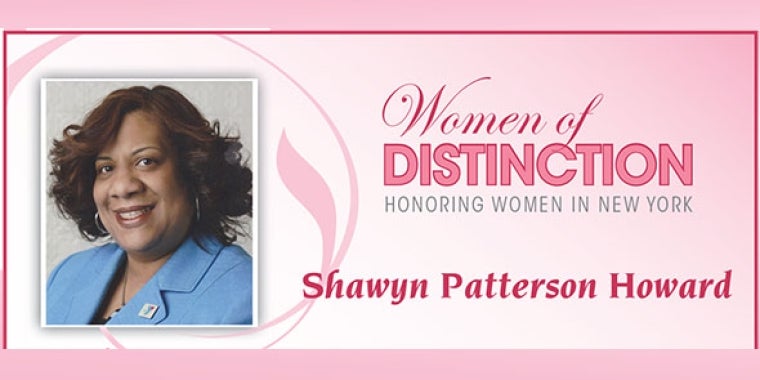
Civil legal services need New Yorkers' support
Ruth Hassell-Thompson
December 15, 2009
-
ISSUE:
- Judiciary

During the budget negotiations, I listened carefully to the leaders of the teachers unions, communication workers, transit workers, health care workers and scores of other hard-working unions and associations. I have also listened to leaders from corporate America and heads of federal and state agencies.
In the end, there will be negotiation and compromise — and this will happen because all of these interests are represented at the decision-making table. They have a voice.
Poor people do not have a voice at the table. They do not have highly-paid lobbyists and unlimited monies to shape public opinion in their favor. And so, I am going to ask the people of the state of New York to support civil legal services for at-risk and indigent families across the state..
In New York state, the Interest On Lawyer Account Fund (“IOLA”) is the largest funder for civil legal services. IOLA receives no tax dollars and is funded by the interest earned on small or short-term funds held by New York attorneys in escrow accounts.
The historically low interest rates set by the Federal Reserve in response to the Wall Street collapse and subsequent economic crisis have been the cause of IOLA’s revenue plunge. Last year, IOLA had nearly $32 million available to fund 71 programs. This year, IOLA will have less than $8 million available, a decline of more than 75 percent.
Right now, the IOLA fund cannot provide monies to organizations like the Legal Aid Society, the Empire Justice Center, the Legal Service Corporation of New York and law firms associated with legal aid. These organizations help families deal with foreclosure actions, evictions, denial of unemployment and Social Security benefits, denial of disability benefits, domestic violence cases and scores of other legal proceedings.
Advocates for the poor argue persuasively that outlays for civil legal services are budgetary pennies that save many dollars. A home saved from auction, an eviction of a family denied and repairs ordered by the court, women protected from abuse, and a homeless child given a roof over her head for the time being — these events happen in court every day.
Civil legal service attorneys win administrative cases for your neighbors. Federal awards for disability and Social Security benefits bring millions of dollars into New York. More importantly, these legal victories keep families intact and stable.
Steve Banks of the Legal Aid Society told me this year that his organization turns away one in every seven people seeking help. As a result of this eye-opening conversation with Mr. Banks, I enlisted the help of Sen. John Sampson and organized public hearings in New York City, Buffalo and Albany.
The purpose of these hearings is to invite the best and brightest legal minds in the nation to come to the table to suggest practical solutions to the problem. Sens. Eric Schneiderman, Liz Krueger, Eric Adams, Velmanette Montgomery, Antoine Thompson and Neil Breslin quickly supported us.
I have invited experts in finance and the law to come together to talk about a better structure — to devise a better way to care for fellow New Yorkers who need our help the most. The financial crisis with civil legal services is not a New York problem — it is a national problem. Massachusetts, California, Connecticut, Texas and many other states in the union have confronted the same problems.
New York needs to learn from our sister states and assess the crisis carefully. With our talent and compassion, I believe we can do better than helping “one in seven” families in need.
I invite all New Yorkers to join me in this effort.
Share this Article or Press Release
Newsroom
Go to NewsroomShawyn Patterson Howard
May 13, 2015

EARTH DAY 2015 POSTER CONTEST: DISTRICT 36
April 10, 2015

